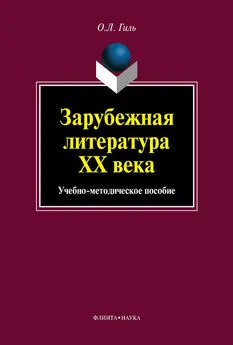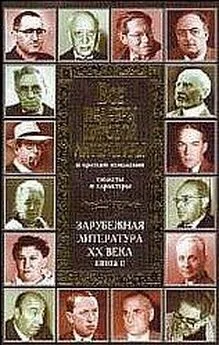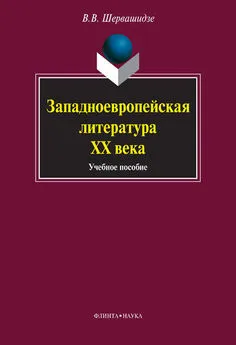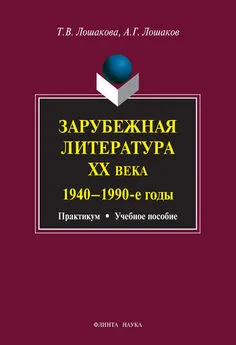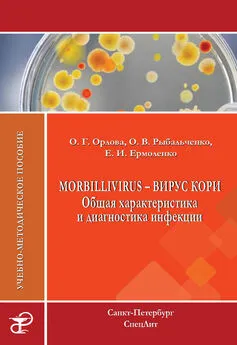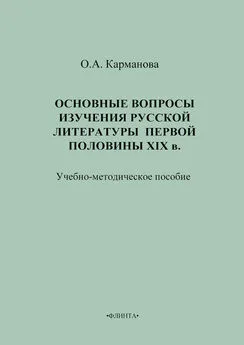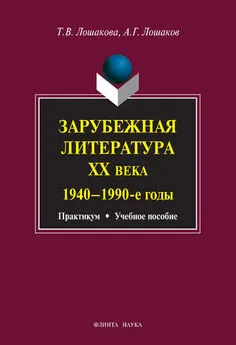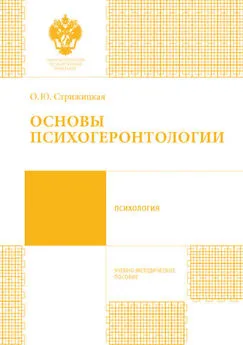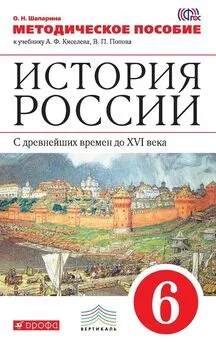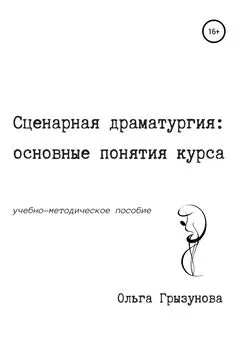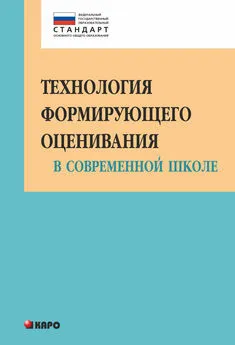Ольга Гиль - Зарубежная литература XX века. Учебно-методическое пособие
- Название:Зарубежная литература XX века. Учебно-методическое пособие
- Автор:
- Жанр:
- Издательство:Литагент «Флинта»ec6fb446-1cea-102e-b479-a360f6b39df7
- Год:2013
- Город:Москва
- ISBN:978-5-9765-1045-6
- Рейтинг:
- Избранное:Добавить в избранное
-
Отзывы:
-
Ваша оценка:
Ольга Гиль - Зарубежная литература XX века. Учебно-методическое пособие краткое содержание
В пособии представлен необходимый теоретический материал и основные понятия по курсу зарубежной литературы XX в.; системе практических занятий; списки текстов для обязательного и дополнительного чтения. В приложении даны некоторые произведения зарубежных поэтов.
Для филологов, журналистов, культурологов, специалистов по связям с общественностью, а также для всех, кто интересуется историей зарубежной литературы ХХ в.
Зарубежная литература XX века. Учебно-методическое пособие - читать онлайн бесплатно ознакомительный отрывок
Интервал:
Закладка:
Когда-то приходил в восторг я
от изящества всех скрипок,
От золотого блеска каблуков
на твердой мостовой.
Теперь я вижу:
Поэзия – великое тепло.
О, Господи, услышь мою мольбу,
поменьше сделай
Одеяло звездное небес,
Чтоб мог я завернуться и с комфортом лечь.
R. Aldington
Evening
The chimneys, rank to rank,
Cut the clear sky;
The moon,
With a rag of gauze about the loins
Poses among them, an awkward Venus —
And here am I looking wantonly at her
Over the kitchen sink.
Р. Олдингтон
Вечер
Трубы, встав в шеренгу,
Режут небо в ясный вечер;
Луна с прозрачной тряпкой
вокруг бедер
Позирует средь них – неуклюжая Венера.
А вот и я, распутник,
Стоя у раковины на кухне,
Не мог не заглядеться на нее.
Lesbia
Grow weary if you will, let me be sad.
Use no more speech now;
Let the silence spread gold hair above us,
Fold on delicate fold.
Use no more speech;
You had the ivory of my life to carve…
And Picus of Mirandola is dead;
And all the gods they dreamed and fabled of,
Hermes, and Thoth, and Christ are rotten now,
Rotten and dank.
And through it all I see your pale Greek face;
Tenderness
Makes me as eager as a little child to love you,
You morsel left half cold on Caesar’s plate.
Лесбия
Грусти сама, позволь и мне грустить.
Не надо слов; пусть золото молчания над нами
За локоном распустит локон.
Не надо слов;
Ты изваять могла мою судьбу.
И Пико из Мирандолы в могиле,
И боги, порожденье снов и сказок,
Давно истлели – Тот, Гермес, Христос…
Но мне все светит бледное лицо;
Я полон нежности
И, как ребенок, тщусь любить тебя,
Скупой объедок цезарских пиров.
The Faun Sees Snow For the First Time
Zeus,
Brazen-thunder-hurler,
Cloud-whirler, son-of-Kronos,
Send vengeance on these Oreads
Who strew
White frozen flecks of mist and cloud
Over the brown trees and the tufted grass
Of the meadows, where the stream
Runs black through shining banks
Of bluish white.
Zeus,
Are the halls of heaven broken up
That you flake down upon me
Feather-strips of marble?
Dis and Styx!
When I stamp my hoof
The frozen-cloud-specks jam into the cleft
So that I reel upon two slippery points…
Fool, to stand here cursing
When I might be running!
Фавн, впервые видящий снег
О Зевс,
Метатель медных молний,
Вихритель туч, сын Кроноса,
Нацель месть свою на ореад,
Разбрызгавших белые стылые пятна
Облаков и тумана
По бурым деревьям и лохматой траве
Лугов, где ручей бежит черной струей
Меж сияющих голубоватой белизной
Берегов.
О Зевс,
Не прорвалась ли твердь небес,
Не осыпается ли на меня
Мраморно-белыми перистыми хлопьями?
Плутоном и Стиксом клянусь,
Когда ставлю я наземь копыта,
Белые холодные пятна оседают, сплющиваются —
И я скольжу по осклизлой почве.
Глупец! Что ж я стою здесь и бранюсь,
Когда бы мог бежать.
Inarticulate grief
Let the sea beat its thin torn hands
In anguish against the shore,
Let it moan
Between headland and cliff;
Let the sea shriek out its agony
Across waste sands and marshes,
And clutch great ships,
Tearing them plate from steel plate
In reckless anger;
Let it break the white bulwarks
Of harbour and city;
Let it sob and scream and laugh
In a sharp fury,
With white salt tears
Wet on its written face;
Ah! let the sea still be mad
And crash in madness among the shaking rocks
For the sea is the cry of sorrow.
Глухонемая скорбь
Пусть море истерзанными руками
Цепляется скорбно за берег
И стонет
Между утесом и мысом.
Пусть море кричит от горя
У песчаных отмелей и болот
И сжимает суда,
Срывая с них стальную обшивку
В бешеном гневе.
Пусть разбивает белые молы
В гавани гóрода.
Пусть рыдает, хохочет и воет
В дикой ярости,
В белых брызгах соленых слез
На искаженном лице.
О! Пусть море в безумье
Бушует и бьется, колебля скалы,
Ибо море – крик скорби.
Childhood
I
The bitterness, the misery, the wretchedness of childhood
Put me out of love with God,
I can’t believe in God’s goodness;
I can believe
In many avenging gods.
Most of all I believe
In gods of bitter dullness,
Cruel local gods
Who seared my childhood.
II
I’ve seen people put
A chrysalis in a match-box,
“To see,” they told me, “what sort of moth would come.”
But when it broke its shell
It slipped and stumbled and fell about its prison
And tried to climb to the light
For space to dry its wings.
That’s how I was.
Somebody found my chrysalis
And shut it in a match-box.
Me shriveled wings were beaten,
Shed their coloures in dusty scales
Before the box was opened
For the moth to fly.
And then it was too late,
Because the beauty a child has,
And the beautiful things it learns before its birth,
Were shed, like moth scales, from me.
III
I hate that town;
I hate the town I lived in when I was little;
I hate to think of it.
There were always clouds, smoke, rain
In that dingy little valley.
It rained; it always rained.
I think I never saw the sun until I was nine —
And then it was too late;
Everything’s too late after the first seven years.
That long street we lived in
Was duller than a drain
And nearly as dingy.
There were the big College
And the pseudo-Gothic town-hall.
There were the sordid provincial shops —
The grocer’s, and the shops for women,
The shop where I bought transfers,
And the piano and gramophone shop
Where I used to stand
Starting at the huge shiny pianos and at the pictures
Of a white dog staring into gramophone.
How dull and greasy and grey and sordid it was.
On wet days – it was always wet —
I used to kneel on a chair
And look at in from the window.
The dirty yellow trams
Dragged noisily along
With a clatter of wheels and bells
And a humming of wires overhead.
They threw up the filthy rain-water from the hollow lines
And then the water ran back
Full of brownish foam bubbles.
There was nothing else to see —
It was also dull —
Except a few grey legs under shiny black umbrellas
Running along the grey shiny pavements;
Sometimes there was a wagon
Whose horses made a strange loud hollow sound
With their hoofs
Through the silent rain.
And there was a grey museum
Full of dead birds and dead insects and dead animals
And a few relics of the Romans – dead also.
There was the sea-front,
A long asphalt walk with a bleak road beside it,
Three piers, a row of houses,
And a salt dirty smell from the little harbour.
I was like a moth —
Like one of those grey Emperor moths
Which flutter through the vines at Capri.
And that damned little town was my match-box,
Against whose sides I beat and beat
Until my wings were torn and faded, and dingy
As that damned little town.
IV
At school it was just as dull as that dull High Street.
They taught me pothooks —
I wanted to be alone, although I was so little,
Alone, away from the rain, the dinginess, the dullness,
Away somewhere else —
The town was dull;
The front was dull;
The High Street and the other street were dull —
And there was a public park, I remember,
And that was damned dull, too,
With its beds of geraniums no one was allowed to pick,
And its clipped lawns you weren’t allowed to walk on,
And the gold-fish pond you mustn’t paddle in,
And the gate made out of a whale’s jaw-bones,
And the swings, which were for “Board-School children”,
And its gravel paths.
And on Sundays they rang the bells
From Baptist and Evangelical and Catholic churches;
They had the Salvation Army.
I was taken to a High Church;
The parson’s name was Mowbray,
“Which is a good name, but he thinks too much of it” —
That’s what I heard people say.
I took a little black book
To that cold, grey, damp-smelling church,
And I had to sit on a hard bench,
Wriggle off it to stand up when they sang psalms —
And wriggle off it to kneel down when they prayed —
And then there was nothing to do
Except to play trains with the hymn-books.
There was nothing to see,
Nothing to do,
Nothing to play with,
Except that in a large empty room upstairs
There was a large tin box
Containing reproduction of the Magna Charta,
Of the Declaration of Independence,
And of a letter from Raleigh after the Armada.
There were also several packets of stamps,
Yellow and blue Guatemala parrots,
Blue stags and red baboons and birds from Sarawak,
Indians and Men-of-War
From the United States,
And green and red portraits
Of King Francobollo
Of Italy.
Интервал:
Закладка:
